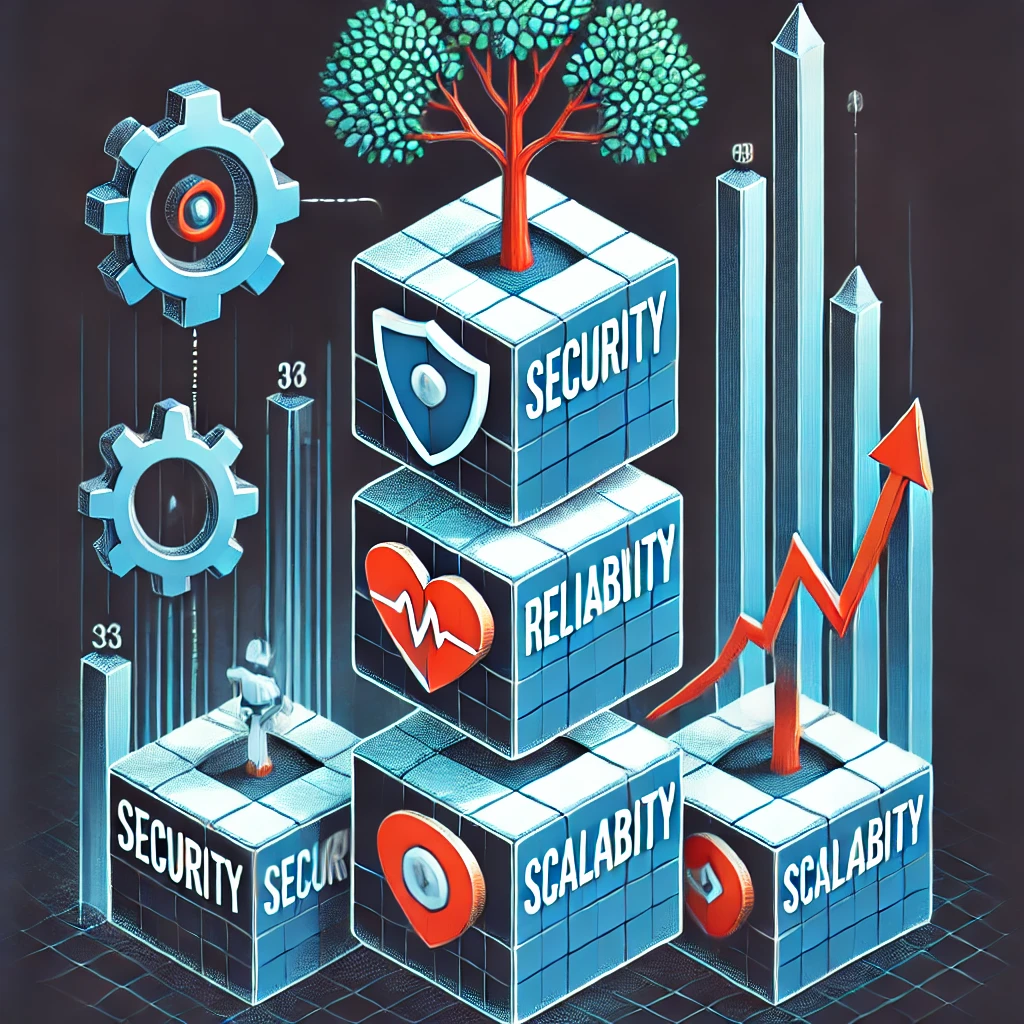Why Security, Reliability, and Scalability Are Critical for Early-Stage Startups Before Investment

When startups rush to launch their Minimum Viable Product (MVP), it’s tempting to prioritize speed over stability. But overlooking key elements like security, reliability, and scalability isn’t just a minor oversight—it’s a risk that can threaten a startup’s survival. In the excitement to get to market quickly, these foundational aspects often take a back seat, leading to long-term challenges. As an investor, recognizing these risks before committing is crucial to safeguarding your investment.
1. Security: More Than an Afterthought
For many early-stage startups, security is often an afterthought. They’re focused on getting their product out the door and into users’ hands. However, failing to prioritize security from the start can have catastrophic consequences.
Key Issues with Security:
- Data Breaches: A lack of security measures can lead to unauthorized access to sensitive user information, resulting in legal ramifications, fines, and a loss of trust.
- Compliance Concerns: Ignoring regulations like GDPR, CCPA, or other regional requirements can lead to costly legal issues and penalties.
Why It Matters:
Security breaches can quickly destroy a startup’s reputation and cause massive financial damage. For investors, a product built without security in mind poses a significant risk to long-term success and return on investment (ROI).
What Investors Should Ask:
- How do you currently manage and monitor security threats?
- What measures are in place to protect user data and ensure regulatory compliance?
2. Reliability: The Foundation of User Trust
Many entrepreneurs focus on the core functionality of their MVP, neglecting the importance of reliability. But an unreliable product can lead to frequent outages, bugs, and frustrated users. When reliability is compromised, user trust is eroded, which can be detrimental to growth.
Key Issues with Reliability:
- Inadequate Testing: Startups often skip thorough testing, leading to frequent system crashes or performance issues as the user base grows.
- Lack of Monitoring: Without proper monitoring and incident response processes, startups struggle to identify and resolve issues quickly.
Why It Matters:
Users expect products to work consistently. Unreliable systems lead to increased churn, poor customer experiences, and damaged reputations—key indicators that investors look for when assessing risk.
What Investors Should Ask:
- What testing processes are in place to ensure product reliability?
- How do you monitor and address system failures or performance issues?
3. Scalability: Preparing for Growth from the Start
Startups often don’t think about scalability until it’s too late. They might build their product with a short-term focus, neglecting to consider whether it can handle increased user demands, additional features, or new markets.
Key Issues with Scalability:
- Short-Term Tech Solutions: Quick, low-cost tech choices might work initially but can cause issues when scaling up. Rebuilding or overhauling infrastructure later is expensive and time-consuming.
- Monolithic Architectures: Startups often create tightly-coupled systems, which are difficult to modify or expand, leading to scalability issues as the company grows.
Why It Matters:
For investors, scalability is a key indicator of a startup’s growth potential. A product that can’t scale effectively will struggle to handle an increasing user base, leading to missed opportunities and higher costs.
What Investors Should Ask:
- What strategies or architecture choices are in place to support scalability?
- How does the product handle increased user demand and additional features?
Rewriting Products: A Costly Reality for Startups
Many startups, after securing investment, find themselves in a position where they need to rewrite their entire product due to poor initial technical decisions. Often, the rush to launch leads to choosing quick fixes over scalable solutions, or overlooking security and reliability concerns. This results in additional time and financial costs, as startups must revisit and overhaul their product to meet the demands of a growing user base.
Conclusion: The Hidden Risks of Ignoring Security, Reliability, and Scalability
While building and launching an MVP quickly is essential for startups, overlooking security, reliability, and scalability can jeopardize long-term success. These are not optional features—they are critical components that lay the groundwork for sustainable growth and trust.
Investors should look beyond the surface and assess whether a startup has the technical foundation to support long-term success. Asking the right questions and focusing on these elements can help you identify startups that are built to thrive, not just survive. By prioritizing security, reliability, and scalability, you’re investing in a startup’s ability to grow with confidence and scale with purpose.